Sherry Beats Fibromyalgia
“The doctor kept telling me it’s just depression, and I was like “No, I’m in pain. I’m having pain in my shoulders” and they just kept trying antidepressants and stuff. Throughout the years I’ve been to a pain center of course, I’ve been to multiple specialists and they put me on all this medication. I think when I came to you, I was probably on about 7-8 different medications. They had tried everything, including a morphine derived pain medication, which I did not want to be on. That’s what put me in your direction, because I wanted an answer to this. Being a nurse, I couldn’t make sense … there’s got to be something. One-thing I wanted to share was, I lived outdoors before I got fibromyalgia … During the summertime, I would go outside a couple of times and try to work in the flowerbed, even just sitting on the ground pulling weeds out.
My husband, he’s been amazing through all this. He was like, “You know you’re going to be hurting tomorrow” but I did not want to give up. I didn’t want to give up my life. Now I can work in the yard again. It’s amazing. My husband is your biggest fan. I’m back to my old self again and he’s like, it’s amazing.”
In 2003 the first edition of my book, Treating and Beating Fibromyalgia and Chronic Fatigue Syndrome is first came out in print. It’s now in its 5th edition and available in most bookstores throughout North America, including Amazon.com, Barnes&Noble.com and most libraries. www.getfibrobooks.com or visit Amazon.com http://www.amazon.com/Treating-Beating-Fibromyalgia-Chronic-Syndrome/dp/0972893873
For the last 7 years, my practice has evolved to where I primarily work with patients by phone. I would say probably at this point 99% of my practice is working with patients by phone, patients throughout North America and overseas.
Unfortunately once you get the diagnosis most doctors will tell you that you just have to learn to live with it. I’m on a mission to change that because I really feel like that is a disservice that’s being done in the fibromyalgia community. The reason why doctors in the conventional world tell you that once you have fibromyalgia you just have to learn to live with it, is because they have nothing for you. That’s just the way it is. Traditional medicine, drug therapy alone is a dead end for fibromyalgia … That’s why after the last 20 years of trying to do it that way, doctors have come to the conclusion that once you get fibromyalgia, you can never feel good again. There’s nothing further from the truth. You can feel good again, but you have do it with a different approach other than just using conventional drug therapy.
In fact, the only way you can feel good and stay feeling good is you have to get healthy. That means different things for different people. It sounds simple but it’s actually very complicated. That’s why my book is 564 pages. There’s a lot to it that has to happen, to allow someone with a multitude of different conditions and illnesses that we call a syndrome called fibromyalgia … we have to find the root causes of these symptoms, because symptoms are nothing more than warning signs.
Yes, you have chronic, diffuse, achy, sometimes debilitating pain but what’s causing that pain? It’s not fibromyalgia. Fibromyalgia is just a name, it doesn’t cause anything. You have fatigue; many of my patients can’t get out of bed each day. I have patients that I’ve worked with, many of whom have shared their stories on this conference call and on my website who were bedridden for months, some patients for years before they started working with me and were able to uncover the root causes of that low energy and fix those causes … not just saying that they have fibromyalgia and that’s why they’re tired.
The challenge with having fibromyalgia is you have to find a doctor who number 1 believes in fibromyalgia; unfortunately there are still many doctors who don’t. Number 2, you have to find a doctor who’s going to do more than try to treat your symptoms with medications, or with over the counter supplements. You have to find a doctor who’s actually going to do the detective work, find out where you’re broken down and then work with you to help you not only feel good but to stay that way; to feel good and to get healthy so you stay that way.
Sherry From Alabama Shares Her Fibromyalgia Success Story
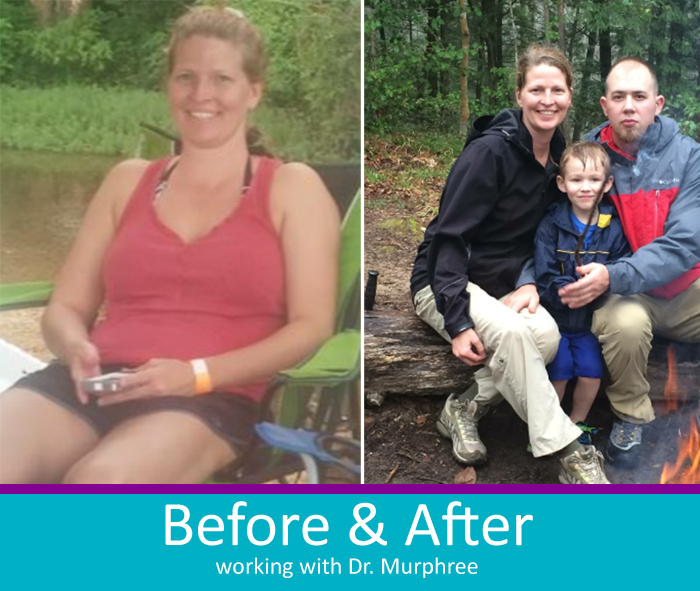
Dr. M: Hi Sherry, thank you for joining me. I appreciate you being here. You heard Christine sharing a little bit about her story. Can you share a little bit about your story? You’re a traveling nurse, so you’re really under the gun, between having to do what you do as a home health nurse, and then having to drive so much. That’s incredibly hard on your spine and your joints. Share with me if you will, what it was like the 4 years or so that you had the diagnosis of fibromyalgia? What was it like having fibromyalgia before we started working together?
Sherry: Dr Murphree, I am so excited to share my story. I was diagnosed with fibromyalgia shortly after my son was born, almost 5 years now. I remember going to the PCP and of course I was crying because I couldn’t take care of my newborn. The doctor kept telling me it’s just depression, and I was like “No, I’m in pain. I’m having pain in my shoulders” and they just kept trying antidepressants and stuff. Throughout the years I’ve been to a pain center of course, I’ve been to multiple specialists and they put me on all this medication. I think when I came to you, I was probably on about 7-8 different medications. They had tried everything, including a morphine derived pain medication which I did not want to be on. That’s what put me in your direction, because I wanted an answer to this. Being a nurse, I couldn’t make sense … there’s got to be something. A year later, I’m on absolutely no medications except for my vitamins that I take from you.
Dr. M: When we first started, you were really struggling and your pain was all-over pain. Tell me about your pain and how it affected you, because you were in a great deal of pain.
Sherry: Yes, it was. It started out in my neck but it had moved down to my hips, my legs … overall pain all over my body, muscular type pain. It felt like I had run several miles but I had done nothing. There were days where I felt it very hard to get out of the bed and go to work, but it’s amazing … I feel great now.
Dr. M: Just like Christine, as I mentioned earlier before you got on the call, you’ve worked really hard to get where you’re at. Tell me about your pain and you working. You had to be pretty miserable doing the job that you do and having all that pain, and then also the low energy that you had … what was a typical day like?
Sherry: It was horrible I would wake up in the morning and the bottom of my feet would hurt. I felt like a 90 year old trying to get to the bathroom out of the bed. I would be hunched over, scooting my feet over to the bathroom to get my day started. I just had to push, push, push. My husband would drive me to work because I couldn’t drive. I’m the breadwinner for our family. I would work and it was horrible pain.
Dr. M: You were able to work but you pushed yourself through work. Tell me when you weren’t working, were you able to be active and do things?
Sherry: No, my day consisted of getting to work. Once I got to work, I could manage through the day and then I would come home and go to bed every day. I have 3 children and it is very upsetting as a mother. You don’t feel like you’re a part of the family. It was simply make myself go to work, I finally get it done, I come home and I go to bed every night. That’s the way it was.
Dr. M: What were your doctors telling you? They had you on Fanvir, Cymbalta, Lexapro, Adderall … all kinds of stuff. What were they suggesting?
Sherry: Every doctor I went to was different, Dr Murphree. It was just one fix after the other that they kept trying. I even said I don’t want to be on pain meds, let’s find something else but that was their solution and that’s not a solution for my life. One thing I wanted to share was, I lived outdoors before I got fibromyalgia … During the summertime, I would go outside a couple of times and try to work in the flowerbed, even just sitting on the ground pulling weeds out. My husband was outside and he’s been amazing through all this. He was like, “You know you’re going to be hurting tomorrow” but I did not want to give up. I didn’t want to give up my life. Now I can work in the yard again. It’s amazing. I can remember how horrific the pain was. After working in the flower bed, I would have been in bed the rest of the weekend literally … all day Saturday afternoon, all day Sunday I would lay in the bed hurting because the pain was so bad.
Dr. M: Were you doing Dr Pridgen’s protocol?
Sherry: Yes.
Dr. M: Did you see Dr Pridgen? I know you were taking the Celebrex …
Sherry: I did. I’d seen him for about a year and I did get a little bit better when I was on that medication, but now it just shows that it’s not really needed. I feel 100 times better than I did then. I’m not even on Celebrex at all now and no Fanvir at all.
Dr. M: Not to rain on his parade, I think he’s probably a good guy but that mentality of combining 2 drugs – Celebrex which you get over the counter which is a non-steroidal anti-inflammatory, and an antiviral medication … that somehow is going to cure people with fibromyalgia or somehow is going to give them a tremendous amount of relief, it’s a fallacy, a myth. He’s got multimillion dollar fundraising, and I think that’s great. At least he’s trying to do something, so I applaud him for that. Unfortunately I think that it’s more chasing windmills. It’s this idea that you can take a drug or a combination of drugs and get your life back. As you know so well, it didn’t. The only thing that works is you’ve got to get healthy. That’s the only way to do it and you did. You eook the steps and did the things that you had to do. You had trouble with your sleep, you had the pain and the low energy. What were some of the things that we did that you thought were really helpful?

Sherry, with her son, back to hiking and camping and enjoying the outdoors with her loved ones.
Sherry: I think the SAM-e seemed to be great. I remember I had tried it previously before meeting you, and I had taken the dosage on the back of the box of course. It did nothing for me. I remember talking to you that day and I remember clear as a bell you saying, you have to listen to me. You have to take this dose and follow exactly what I’m telling you. When I did exactly what you told me, I remember in just a couple of days I was like oh my gosh, it’s working. It really worked when I did what you said.
Dr. M: The advantage I had was the testing. I knew from your questionnaire, history and the testing that if we could get your norepinephrine level elevated, your pain would go down and you’d have more energy. Sure enough, it worked so that was a great thing.
Sherry: Being a nurse, I’m not very compliant with medication because nurses are not very compliant but I promise you, I take my SAM-e every morning no matter what. I have some in my house, my car and in my purse because it’s just made a huge difference in my life.
Dr. M: You did the diet as well and you had some issues with foods that you tried to eat. I think one time you ate sushi and that didn’t go well. That was a learning lesson, wasn’t it?
Sherry: It was a very big learning lesson. The diet has really made me feel better, I think it’s amazing.
Dr. M: I think the value of that is you learn that food is your medicine and medicine is your food. We’ve got so far away from that … it seems like everybody would know that but we’ve got so jaded with just wanting a pill for everything, we don’t realize that what we put in our bodies affects how we feel. Certainly when you go on a diet like the anti-inflammatory diet, you quickly learn just how good you can feel if you eat the right way. You also learn how quickly you can feel bad if you don’t eat the right way.
Sherry: Two of my main problems were bread and sugar. Donuts used to be my favorite staple, I loved them but I haven’t had one in over a year. I’m so excited ….
Dr. M: People would say how could I live without sugar, how could I live without bread? I’ll ask you, how can you live without sugar and without bread? How can you give those things up?
Sherry: I’m going to say this, if you truly have fibromyalgia and you know what it’s like to live in that pain and then once you experience it going away, it’s not hard. It’s worth it.
Dr. M: I totally agree. It doesn’t mean you can’t ever have a little treat here and there, but you quickly out if you go too far off the path, then you start to feel bad again. You’re in Alabama but we did most of our consults by phone. What was it like working with me by phone?
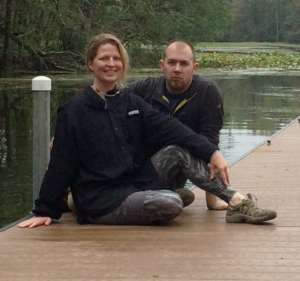
Sherry and her husband, enjoying the outdoors again.
Sherry: I loved it because it’s like I’ve got my knowledgeable friend on the other end of the line. We communicate well together, you’re always flexible with me. You’ve been great, it’s been very easy for me. I like you calling in every couple of weeks, we talk and just touch base. For one thing, it holds me accountable and the other thing, if I happen to have a question you’re there for me. I love the girls too.
Dr. M: Yeah, Juno and Gina and Cheryl are fantastic. People have obviously commented I guess that you look like you feel better, you look healthier and you’ve shared your story. What did they say to you when you tell them that you’re working with a doctor in Birmingham by phone?
Sherry: My husband is your biggest fan. I’m back to my old self again and he’s like, it’s amazing. He and I both share my story with people … I try to explain to people how well it’s benefited me and everything like that.
Dr. M: You being a nurse, I think that sometimes when you’re in that community a lot of times you get browbeat when you go outside of that community. That’s a shame that that happens, but what’s interesting is I have a lot of nurses and doctors who are patients. Maybe part of that is you do look in that arena, you see what’s going on and you realize you know what, it’s not working. I need to do something different.
Sherry: Exactly right.
Dr. M: What would you share in closing? What would be your advice to others who may be wondering if a get healthy program is the right thing for them? They’ve got fibromyalgia and they’re just not sure number 1, am I real and number 2, can it work … number 3, is it something that’s worth doing?
Sherry: I’m going to tell them this. I remember the first visit I had in your office, you told me that we can do this a couple different ways. You can go all in and we can get you better faster … I talked to my husband and he said I want you back at normal, so we went all in and it’s the best thing that I’ve ever done. Take that leap. You’ve got to go all in because you’ve got to make that commitment. No matter what, you’re going to stick with this 100% and it’s going to happen. It’ll change your life.
Dr. M: I’m so excited with how well you’re doing and your family is just tickled … your kids and obviously your husband. I’m really proud of you. As you said, you did everything I asked and some of that was a leap of faith but you did it. I’m so proud of you.
Sherry: Thank you, Dr Murphree.
Dr. M: You’re so welcome. Thanks for joining me, I look forward to talking to you soon.
Sherry: Thank you and have a good night.
Dr. M: You too. I want to thank Sherry for coming on the line and joining us tonight.
These patients and hundreds of others who’ve worked personally with me have in fact beaten their fibromyalgia. You can read or listen to their stories by clicking the link below:
|
|

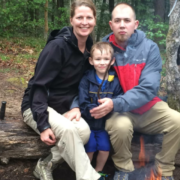
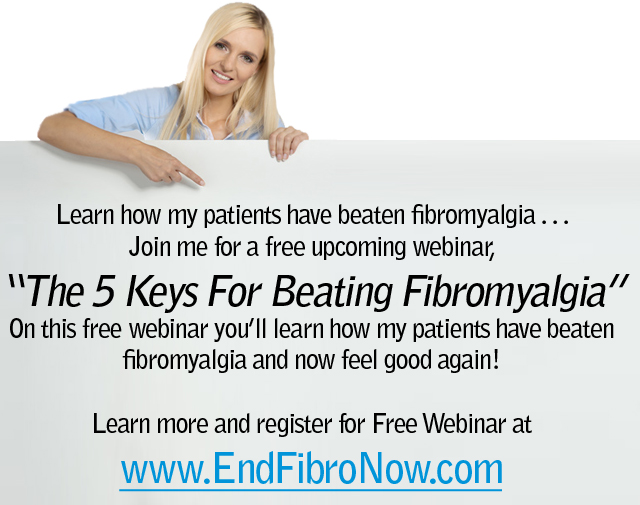
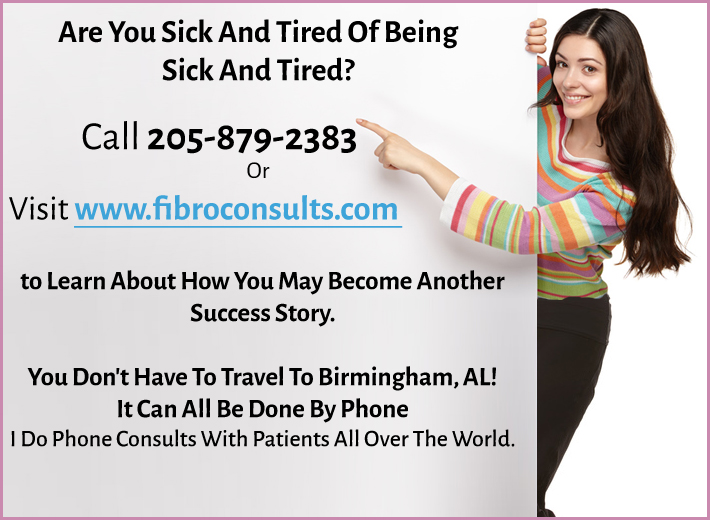
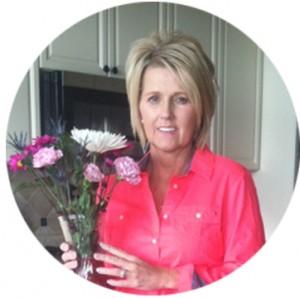
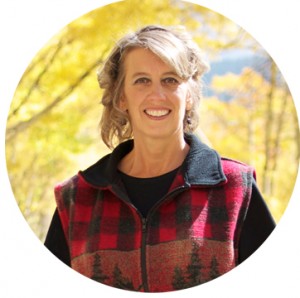
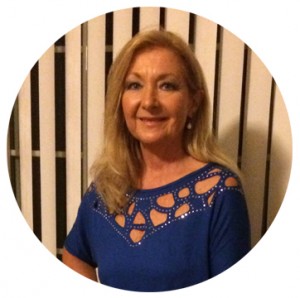








I have been living with fibro for 18 yrs. I still have more bad days then good, I have changed my diet, but still need pain pills and other meds to get through the day. I would like more natural healthy help to relieve the pain and exhaustion, and stress.
I’d love to help. You can learn more about my all natural protocols and how I’ve helped thousands feel good again. http://www.getfibrobooks.com